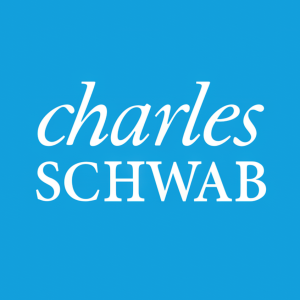Tenth Edition of Schwab’s ETF Investor Study Shows Strong and Growing Appetite for ETFs
The ETF Investor Study by Charles Schwab reveals a significant increase in ETF investments among individual investors. The study shows that ETF allocations in portfolios are expected to rise from 29% to 38% over five years. A remarkable 94% of current ETF investors plan to continue purchasing, while 45% of non-ETF investors are likely to consider ETFs. Millennials lead in ETF adoption, with 29% planning significant investments in the next year. Key factors for interest include diversification (60%) and ease of transactions (49%).
- 94% of ETF investors plan to purchase ETFs in the next two years.
- 38% expected ETF share increase in portfolios over five years.
- Millennial ETF adoption is strong, with 29% planning significant investments.
- 46% of non-ETF investors feel they don't understand ETFs well enough.
Insights
Analyzing...
ETF investors surveyed see the share of ETFs in their portfolios growing to
“Over the decade we have conducted this study, ETF investors’ appetite and affinity for ETFs has grown dramatically. They feel much more knowledgeable and confident in their abilities to use these products to help achieve their financial goals,” said David Botset, SVP of Product Strategy for Charles Schwab Investment Management, Inc. “This year we also asked non-ETF investors about their interest in ETFs. At a time when individual investors are particularly engaged in the markets, it is interesting to see that a significant pool of investors who have never dipped a toe into the world of ETFs are interested in adding these products to their portfolios.”
Top reasons non-ETF investors who are likely to consider buying ETFs might do so |
||
To diversify portfolio |
|
|
ETFs are easy to buy and sell |
|
|
ETFs are low cost |
|
|
For tax efficiencies |
|
|
Top reasons non-ETF investors who are unlikely to consider buying ETFs will refrain from buying them |
||
Don’t understand enough about ETFs |
|
|
Happy with current investment portfolio and not interested in ETFs |
|
|
Prefer mutual funds |
|
|
ETFs are too risky / ETFs are too complicated |
|
|
As in years past, Millennials continue to outpace Gen X and Baby Boomers in ETF adoption, though Gen X is not far behind. Over the next year,
When it comes to specific ETF preferences, ETF investors point to actively managed ETFs, market cap index ETFs and fixed income ETFs as the top categories that they feel will add value in helping them reach their investment goals. Active semi-transparent ETFs are beginning to attract investors’ interest, with
ETF Investor Evolution
The proportion of ETFs in investors’ portfolios increased by about
Investors feel much more confident when it comes to making decisions about ETFs. In the latest study,
“Education is a key ingredient to success in all aspects of investing, so it is very exciting to see the evolution that has taken place with ETF investors’ familiarity and comfort with ETFs,” said Botset. “Certainly the myriad strengths of ETFs – from tax efficiency, to low fees, to transparency – have paved the way for investors to adopt them as foundational building block components of an investment portfolio.”
About the Study
Charles Schwab & Co., Inc. (Schwab) commissioned Logica Research to conduct an online survey of 2,000 individual investors between the ages of 25 and 75 with at least
About Charles Schwab
At Charles Schwab we believe in the power of investing to help individuals create a better tomorrow. We have a history of challenging the status quo in our industry, innovating in ways that benefit investors and the advisors and employers who serve them, and championing our clients’ goals with passion and integrity.
More information is available at www.aboutschwab.com. Follow us on Twitter, Facebook, YouTube, and LinkedIn.
Disclosures
Through its operating subsidiaries, The Charles Schwab Corporation (NYSE:SCHW) provides a full range of securities brokerage, banking, money management and financial advisory services to individual investors and independent investment advisors. Its broker-dealer subsidiary, Charles Schwab & Co., Inc. (Schwab), and affiliates offer a complete range of investment services and products including an extensive selection of mutual funds; financial planning and investment advice; retirement plan and equity compensation plan services; compliance and trade monitoring solutions; referrals to independent fee-based investment advisors; and custodial, operational and trading support for independent, fee-based investment advisors through Schwab Advisor Services. Its banking subsidiary, Charles Schwab Bank (member FDIC and an Equal Housing Lender), provides banking and lending services and products. More information is available at www.schwab.com and www.aboutschwab.com. CSIM and Schwab are separate but affiliated companies and subsidiaries of The Charles Schwab Corporation.
Brokerage Products: Not FDIC Insured • No Bank Guarantee • May Lose Value
Investment returns will fluctuate and are subject to market volatility, so that an investor’s shares, when redeemed or sold, may be worth more or less than their original cost. Unlike mutual funds, shares of ETFs are not individually redeemable directly with the ETF. Shares of ETFs are bought and sold at market price, which may be higher or lower than the net asset value (NAV).
©2021 Charles Schwab & Co., Inc. All rights reserved.
(0321-19NM)
View source version on businesswire.com: https://www.businesswire.com/news/home/20210318005177/en/







